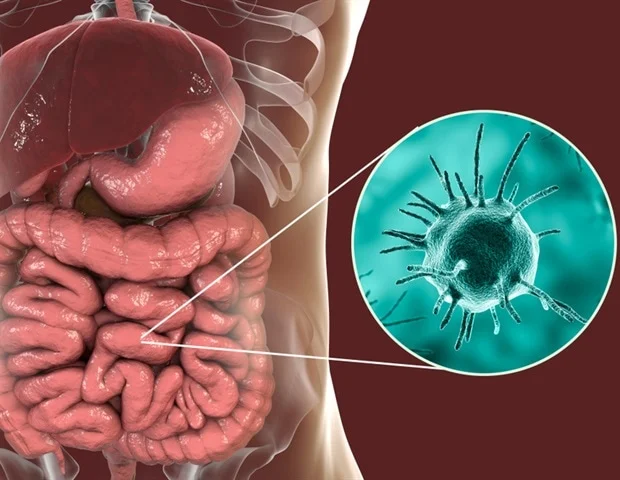What is Fitness and Nutrition?
As part of your attempt to live a healthier lifestyle, one important question may arise – What is Fitness and Nutrition? This term encompasses more than lifting weights or following trendy diets; rather it encompasses physical activity combined with mindful eating to meet our body’s needs. By understanding how fitness and nutrition interact, you gain tools that will increase energy, prevent disease and allow you to feel your best; this article will shed more light on their importance to overall well-being.
Understanding Fitness Needs and Concepts
Physical fitness refers to your ability to complete daily tasks without becoming physically exhausted due to strength, stamina, flexibility, or cardiovascular issues. A fit person is capable of walking long distances quickly while lifting heavy objects with relative ease while recovering quickly from exertion while remaining mentally alert – these qualities define fitness.
Fitness should serve three main goals, supporting your heart, muscles and joints – strengthening posture while decreasing injury risk and building self-confidence are additional benefits of regular fitness practice.
Components of Fitness
To promote physical wellbeing, it is necessary to recognize five core components of fitness. They include:
Cardiovascular Endurance
Your ability for both your heart and lungs to provide enough oxygen during physical activity.
Muscular Strength
Your muscles produce force through their contraction.
Muscular Endurance
Muscular endurance can be defined as your ability to sustain physical exertion without becoming fatigued and endure for as long as possible without succumbing to muscle soreness or giving out.
Flexibility
Refers to your ability to move through an expansive range of motion with your joints.
Body Composition
Your ratio of lean mass to fat mass.
Maintaining equilibrium among these areas ensures your body operates as an integrated unit; otherwise, imbalances, fatigue or even injury could occur.
Nutrition Basics and the Role of Food
At first, nutrition may appear complex; don’t panic though – here you will find all of the information needed.
Nutrition is the study of how food affects our bodies in terms of function, energy consumption and overall wellness. Achieve proper nutrition requires taking in essential macro- and micronutrients like carbs, proteins, fats and vitamins/minerals such as those found in carbs, proteins and fats as well as vitamins/minerals which provide daily functioning benefits like tissue repair as well as physical movement fuelling activities like walking.
Good nutrition means providing our bodies with energy-rich meals to meet all of their energy requirements – be it athletes or active individuals looking to stay physically fit. Every bite matters!
Macronutrients and Micronutrients
Carbs offer quick energy boosts during workouts or daily tasks.
Proteins play an essential role in muscle rehabilitation and should not be underestimated as recovery tools.
Healthy fats offer numerous advantages for brain, hormonal and joint mobility.
Vitamins and minerals such as iron, calcium and magnesium help strengthen immunity while supporting bone and nerve health.
Hydration is Vital
Hydration is of great significance; keeping properly hydrated helps improve digestion, regulate temperature and ensure joints and muscles perform at their maximum potential.
Fitness and Nutrition Can Coexist – Fuel Your Performance
Even the most disciplined trainer cannot make up for poor nutrition when it comes to performance. For optimal fitness, your body requires all its essential nutrients – carbohydrates provide energy during workouts while proteins repair muscles post workout, providing faster recovery rates and long-term increases in performance.
Combine lean proteins like chicken or tofu with complex carbs such as brown rice or quinoa for energy-rich combinations that fuel exercise performance both before and after physical activity for maximum performance and recovery.
Timing plays an essential part of this equation; scheduling snacks an hour prior and post workout meals within thirty minutes after physical activity will have an enormous effect on how you feel during activity, as well as performance levels.
Fitness and Nutrition Join Force to Achieve Long-Term Health
Fitness and nutrition combine forces to foster long-term health by mitigating risks such as cardiovascular disease, diabetes and obesity. Food can offer immunity-enhancing properties while physical activity boosts cardiovascular performance, balance and mental clarity.
Integration of exercise and nutrition into your lifestyle is integral for managing weight, decreasing inflammation and improving sleep quality. Movement drives nutrition; so the more active you are, the healthier your diet becomes!
An Approach That Balances Benefits with Physical Transformation and Endurance
By combining fitness training with smart nutrition, you’ll eventually see gradual improvements to strength, flexibility, stamina, endurance and recovery speed over time. Though results won’t appear instantly, your body will adapt so workouts become easier while recovery accelerates more rapidly – something which may take several weeks before becoming apparent.
Fitness and Nutrition for Emotional Well-Being
Both fitness and nutrition play an integral part in our emotional well-being, providing endorphins (the “feel good” hormones) during exercise while eating nutritious foods like leafy greens and fatty fish can promote brain health while simultaneously decreasing anxiety levels.
Establishing Sustainable Lifestyle Habits | Saga Fitness Inc.
When it comes to creating long-term fitness and healthy eating habits, sustainable changes don’t involve sudden transformation or short-term solutions; rather, developing long-term routines means developing habits you will keep doing over time – whether that means daily walks, three times weekly strength training or meal prepping ahead of time.
What Are My Meal Needs
There is no hard and fast rule when it comes to selecting how many meals a day are necessary; each person requires different amounts; some individuals might do well with three meals while others might require five or six smaller ones spread throughout their day. What matters most is eating healthy food which provides energy throughout your day.
How Does My Body Need Protein?
An average adult, being active, requires an intake of 0.8-1.2 g of protein per Kg of bodyweight in order to be at optimal function and performance. For someone building muscle or doing intense training, higher amounts may be required and should be derived from high-quality foods like eggs, legumes, lean meats, and dairy.
Supplements may help fill nutritional deficiencies and needs, but should never take the place of real food which provides essential fiber, antioxidants and vitality benefits that supplements cannot match.
What Are My Consequences If I Don’t Eat Enough?
Under-eating calories will result in the bathroom privileges of tiredness, slow recovery, muscle wastage, and hormone imbalance if one is involved in regular physical activities like training. As such, any activity level should justify eating sufficient calories to meet this demand.
Conclusion
Fitness and nutrition is about creating balance between our physical activities and eating habits to reach our full physical, mental, and emotional potential. Instead of seeking quick fixes in this arena, try creating healthy habits that support both body and life; that way your journey won’t become temporary – don’t give up; remember you have this!















Leave a comment